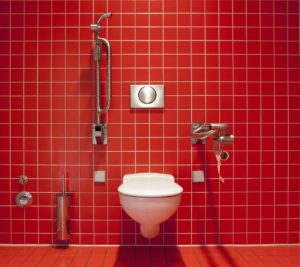Image by Hermann Traub from Pixabay
In this post we’ll cover basic French vocabulary related to time, days, and dates.
Jour et nuit: Day and Night
Let’s start with some basic vocabulary related to time of day: le jour/la journée day; la nuit night; le matin morning; l’après-midi afternoon; le soir/la soirée evening.
- Il est tôt/tard.
It’s early/late. - Je dors la nuit.
I sleep at night. - Je travaille (pendant) la journée.
I work during the day. - Nous lisons le soir.
We read in the evening.
NOTE! The words la journée and la soirée refer to the amount of time during the day and evening, the stretch of time as opposed to day vs. night. You can get a sense for the difference in these greetings:
- Bonjour !
Hello! Good day! Good morning! (Said when greeting someone.) - Bonne journée !
Have a good day. Enjoy the rest of your day. (Said when saying goodbye.) - Bonsoir.
Good evening. (Said when greeting someone.) - Bonne soirée !
Enjoy the rest of your evening. (Said when saying goodbye.)
You’ll also see this distinction when you’re talking about spending time, as opposed to a division of time.
- tous les jours, tous les soirs
every day, every evening - toute la journée
all day long - toute le soirée
all evening long, the whole evening
Quelle heure est-il ? What time is it?
To ask what time it is, use quelle heure est-il ? The answer will follow the format il est une heure (it is one o’clock) or il est ___ heures (it is ___ o’clock) for hours greater than one. The phrase et demie means and half, and it can be used along with trente (thirty) to mean half past. The phrases du matin (in the morning), de l’après-midi (in the afternoon) or du soir (in the evening/at night) can be used, but it’s very common in French to use the 24-hour clock, in which case it’s not necessary to specify.
- Quelle heure est-il ?
What time is it? - Il est midi.
It’s noon. - il est une heure (du matin).
It’s 1:00 AM. - Il est treize heures/une heure de l’après-midi.
It’s 1 :00PM. - Il est quatorze heures/deux heures de l’après-midi.
It’s 2:00PM. - Il est quinze heures trente.
It’s 3:30PM. - Il est dix-sept heures quarante -cinq.
It’s 5:45PM. - À quelle heure le train part-il ?
When does the train leave? - Le train part à treize heures trente.
The train leaves at one thirty in the afternoon. - À quelle heure le magasin ouvre-t-il ?
What time does the store open/close? - Le magasin ouvre à dix heures.
The store opens at ten o’clock in the morning.
Quel jour sommes-nous ? What day is it today?
The days of the week in French are: lundi Monday; mardi Tuesday; mercredi Wednesday; jeudi Thursday; vendredi Friday; samedi Saturday; dimanche Sunday. Some other key vocabulary is: aujourd’hui today, demain tomorrow, hier yesterday, ce soir tonight, la semaine the week, le week-end the weekend.
- Quel jour est-il ?
Quel jour sommes-nous ?
What day is it? - Je travaille le lundi, mardi, mercredi, jeudi, et vendredi.
I work on Monday, Tuesday, Wednesday, Thursday, and Friday. - Nous voyons nos ami(e)s tous les samedis.
We see our friends every Saturday. - Que faites-vous ce soir ?
What are you doing tonight? - Qu’avez-vous fait hier ?
What did you do yesterday? - Je te vois ce week-end. / On se voit ce week-end.
I’ll see you this weekend.
Cette semaine: This Week
Some other important vocabulary to know when you’re talking about dates and times are: la semaine week; le mois month, l’année (f.) /l’an (m.) year.
- cette semaine, ce mois, cette année
this week, this month, this year - la semaine dernière, le mois dernier, l’année dernière
last week, last month, last year - la semaine prochaine, le mois prochain, l’année prochaine
next week, next month, next year - La classe commence la semaine prochaine/le mois prochain/l’année prochaine.
The class starts next week/ month/ year. - La classe a commencé la semaine dernière, le mois dernier, l’année dernière.
The class started last week/ month/ year.
Quelle est la date d’aujourd’hui ? What’s the date today?
The months of the year are: janvier January, février February, mars March, avril April, mai May, juin June, juillet July, août August, septembre September, octobre October, novembre November, décembre December.
- Quand est ton anniversaire ?
When is your birthday? - Mon anniversaire est le vingt-quatre novembre.
My birthday is on November twenty-fourth. - Ma famille arrive le deux août.
My family arrives on August second. - On part en vacances du huit au vingt juillet.
We go on vacation from July eighth through July twentieth.
Do you want to learn French?
Check out our other posts on French language, culture, and more. And if you’re looking for convenient and affordable live French lessons with a real teacher, check out The Language Garage. Our lessons are given online in a virtual classroom, so it doesn’t matter where you live or work. We can come to you. And we have flexible options, with a free trial so that you can decide if there’s a fit. Check us out!





